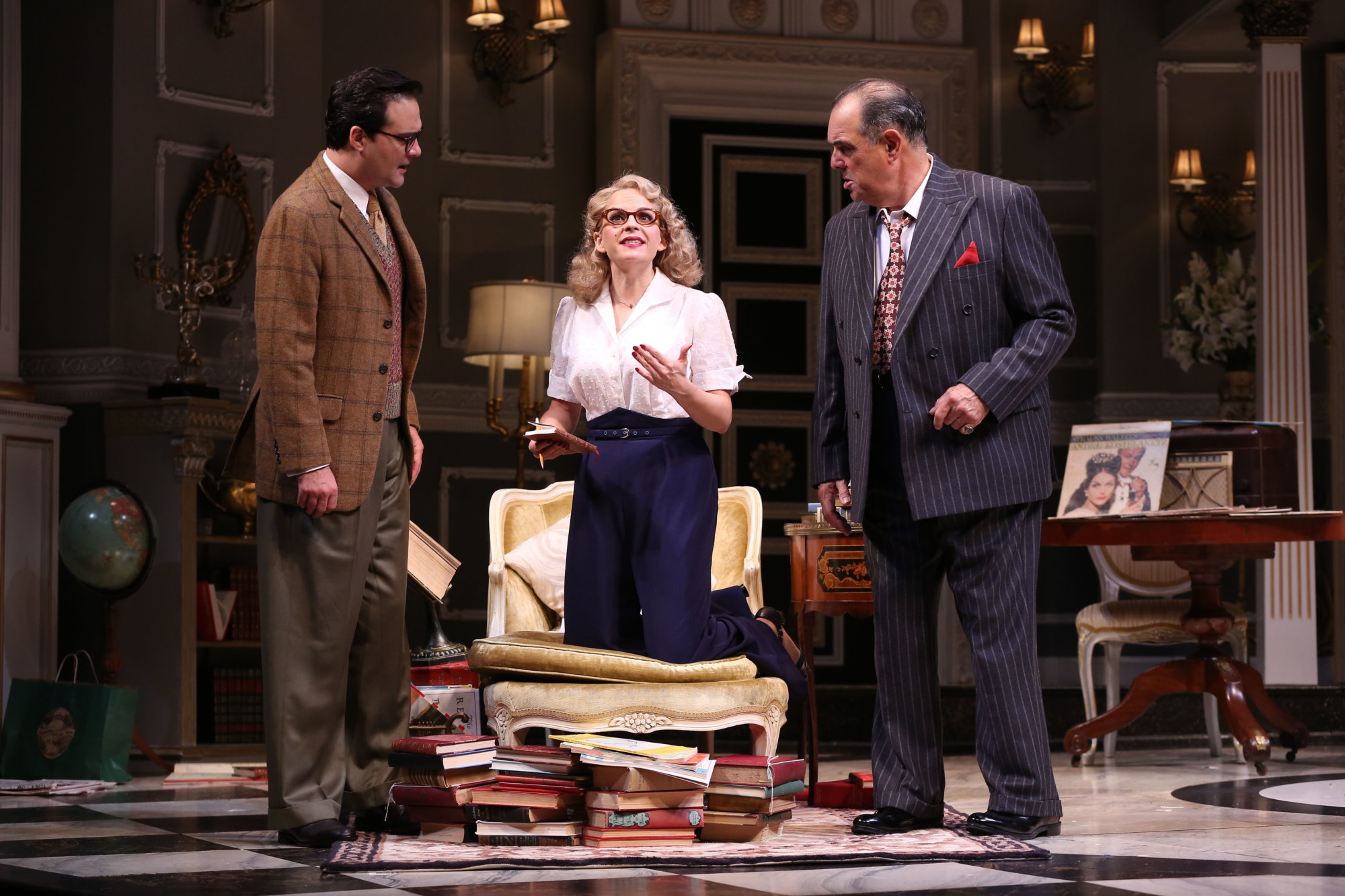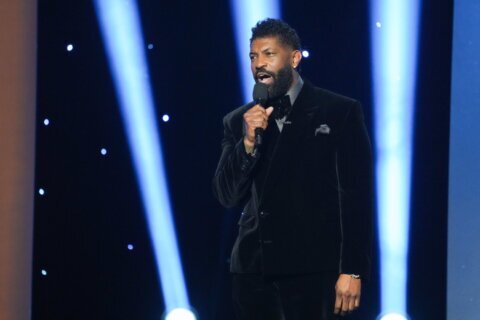
WASHINGTON — If you’ve never seen “Born Yesterday,” you were likely born yesterday.
Garson Kanin’s political screwball comedy debuted on Broadway in 1946 with the hilarious Judy Holliday, who reprised the role to win an Oscar in the 1950 movie of the same name.
Now, you have just a week left to catch “Born Yesterday” before it wraps at Ford’s Theatre.
“I must have watched it with my mother 15 years ago on Turner Classic Movies,” actress Kimberly Gilbert told WTOP. “I recently saw it on the big screen — the AFI showed it this summer in Silver Spring — so I have a lot of moments in the play that are definitely an homage to Judy. … You can’t ignore genius when it’s created for that many years and that many performances have marinated. You can’t help but steal from it because it’s beautiful.”
The story follows a wealthy but corrupt junk dealer Harry Brock (Edward Gero), who visits D.C. with his showgirl mistress Billie Dawn (Kimberly Gilbert). Her naiveté to Washington threatens his business deals, so he hires journalist Paul Verrall (Cody Nickell) to show her the ropes. Of course, the two fall in love as Billie schemes to thwart Brock’s plans to bribe a Congressman.
“She realizes that maybe she may not have all of the SAT words at her disposal, [but] her voice is not only important but vital to the grand experiment that is America,” Gilbert said. “I love those moments in the play that she realizes she’s just as important as anybody else, whether she is in blonde highlights, red lipstick or [painted] nails. I grew my nails out for this show and I’m stabbing myself constantly! … I am the archetype of my 13-year-old self’s dream.”
“Born Yesterday” remains one of Kanin’s solo works amid a career of collaborations with wife Ruth Gordon (“Rosemary’s Baby,” “Harold and Maude”), who co-wrote many Hollywood scripts with him, including a part for Holliday in the Hepburn-Tracy film “Adam’s Rib” (1949).
“He takes pop culture and puts it into his script … so that people who were watching the play then go, ‘Oh yeah, I know what you’re talking about,'” Gilbert said. “How I feel he writes is succinct in terms of action and movement, but also he wasn’t afraid to make it of the time. It really is this time capsule of how certain people spoke in the late ’40s, post World War II.”
That time capsule includes period visuals by set designer Dan Conway.
“Conway … has built a two-story classic D.C. hotel room,” Nickell said. “It’s really beautiful in the Ford’s space and Kelsey Hunt, the costume designer, has really popped these characters and brought them to life. … You walk in and you experience this really ’40s vibe right away.”
Director Aaron Posner told the cast it was their job to fill the space.
“It is opulent and beautiful,” Gilbert said. “This set is a character and you have to match the larger-than-life grandiosity. … What we were doing in the rehearsal space was a little more natural, and he’s like, ‘OK, great. Do that, now just amplify everything up to 12!’ … It made us dive deeper into the style — and the style is what anchors us in this grandiose set.”
The style is distinctly ’40s screwball comedy with rapid-fire repartee.
“The phrasing might be slightly different to your ear, but it still pops,” Nickell said. “It’s fast paced and everybody is really, really smart. Even the people that are supposed to be dumb in the play, everybody’s got a brain that moves a thousand miles a minute. It’s that kind of rapid-fire wit that screwball comedies of the day [often used] and that we still get now.”
Indeed, you can see the style’s influence on popular shows today.
“I think about ‘Gilmore Girls,’ that kind of quick, rapid-fire dialogue,” Gilbert said. “‘Marvelous Mrs. Maisel’ on Amazon, which is why I think that show is doing so wonderfully because it’s of that era of the play we’re doing now. It’s the same recipe just with different ingredients.”
Beneath it all is a timeless political commentary.
“A number of times people have come up to me after the show and said, ‘How many things did you change to make it relevant for right now?’ … I’m like, ‘Nothing,'” Gilbert joked.
“Passing references to the Supreme Court elicit groans or laughter or applause,” Nickell said. “It’s a play about politics in D.C. and I don’t think that stuff has changed much. It’s idealism vs. cynicism, big money vs. representation of the people. … That’s D.C. in a nutshell. … It’s a straight-up good romantic comedy vibe with scarily prescient writing from a playwright 60-or 70 years ago, still on point, still on topic. The American experiment is fragile and it’s funny.”
Find more details on the theater website. Listen to our full conversation with the cast below:







